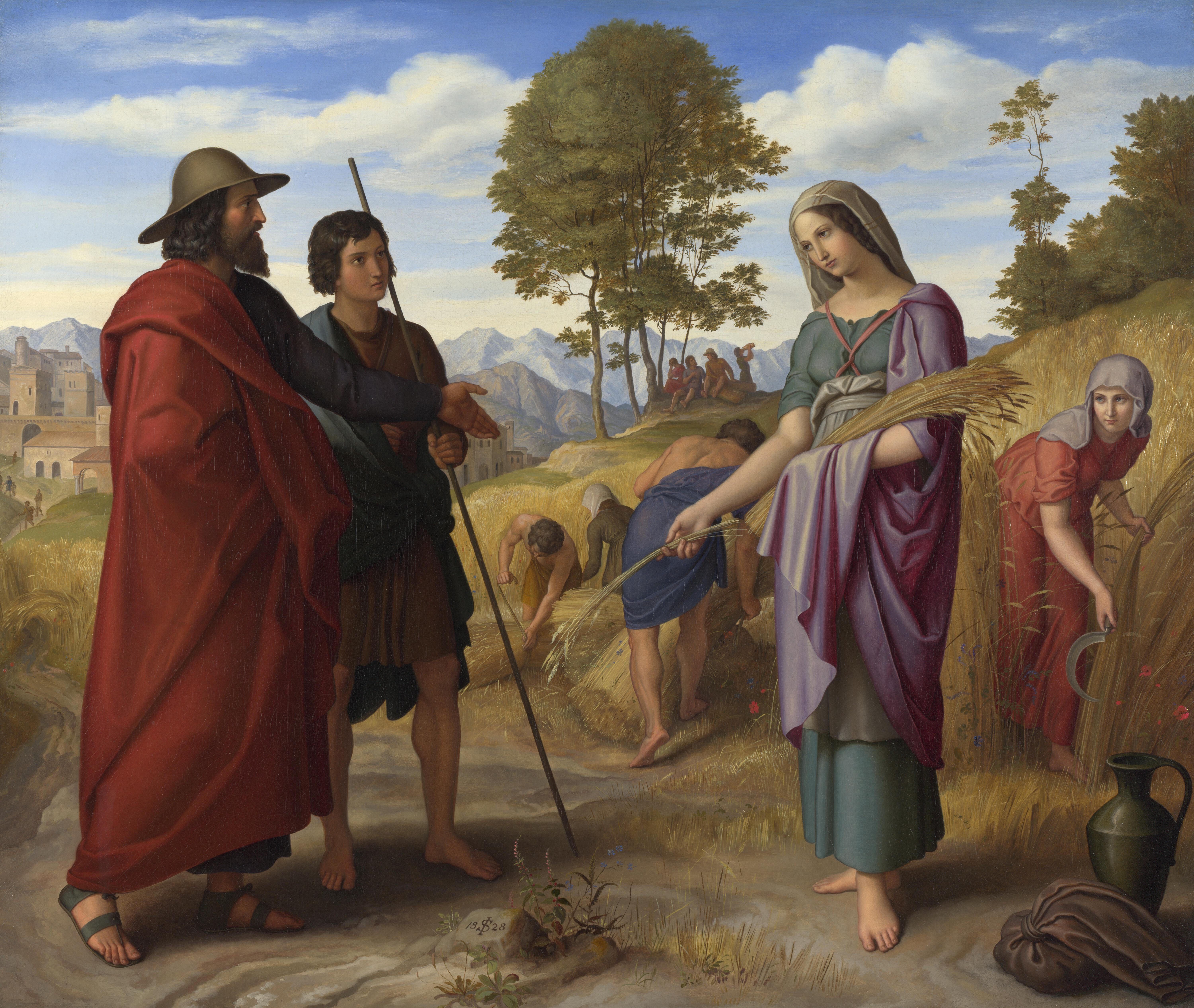|
Mahlon
Mahlon ( ''Maḥlōn'') and Chilion (כִּלְיוֹן ''Ḵilyōn'') were two brothers mentioned in the Book of Ruth. They were the sons of Elimelech of the tribe of Judah and his wife Naomi. Together with their parents, they settled in the land of Moab during the period of the Israelite Judges. On foreign soil, Mahlon married the Moabite convert Ruth (Ruth 4:10) while Chilion married the Moabite convert Orpah. Biography The test of childless Ruth and Orpah Elimelech and his sons all died in Moab, leaving Naomi, Ruth, and Orpah widowed. Ruth and Orpah did not bear Jewish children, too. The story in the book tells that Naomi plans to return to Israel, and that she tests her daughters-in-law. She gives them the advice to return to their mother's home: which would mean drastically violating Jewish Law and reverting to Moabite culture and idol worship. Ruth in Israel While Orpah returns and leaves Judaism, Ruth chooses to stay with Naomi, thus proving her former conversion to be ... [...More Info...] [...Related Items...] OR: [Wikipedia] [Google] [Baidu] |
Book Of Ruth
The Book of Ruth ( he, מגילת רות, ''Megilath Ruth'', "the Scroll of Ruth", one of the Five Megillot) is included in the third division, or the Writings (Ketuvim), of the Hebrew Bible. In most Christian canons it is treated as one of the historical books and placed between Judges and 1 Samuel. The book, written in Hebrew in the 6th–4th centuries BCE, tells of the Moabite woman Ruth, who accepts Yahweh, the God of the Israelites, as her God and accepts the Israelite people as her own. In Ruth 1:16–17, Ruth tells Naomi, her Israelite mother-in-law, "Where you go I will go, and where you stay I will stay. Your people will be my people and your God my God. Where you die I will die, and there I will be buried. May the Lord deal with me, be it ever so severely, if even death separates you and me." The book is held in esteem by Jews who fall under the category of Jews-by-choice, as is evidenced by the considerable presence of Boaz in rabbinic literature. The Book of Rut ... [...More Info...] [...Related Items...] OR: [Wikipedia] [Google] [Baidu] |
Ruth (biblical Figure)
Ruth (; ) is the person after whom the Book of Ruth is named. She was a Moabite woman who married an Israelite. After the death of all the male members of her family (her husband, her father-in-law, and her brother-in-law), she stays with her mother-in-law, Naomi, and moves to Judah with her, where Ruth wins the love and protection of a wealthy relative, Boaz, through her kindness. She is one of five women mentioned in the genealogy of Jesus found in the Gospel of Matthew, alongside Tamar, Rahab, the "wife of Uriah" ( Bathsheba), and Mary. Book of Ruth In the days when the judges were leading the tribes of Israel, there was a famine. Because of this crisis, Elimelech, a man from Bethlehem in Judah, moved to Moab with his wife, Naomi, and his two sons, Mahlon and Chilion. There Elimelech died, and the two sons married Moabite women, Orpah and Ruth. They lived for about ten years in Moab, before Mahlon and Chilion died, too. Naomi heard that the famine in Judah had passed ... [...More Info...] [...Related Items...] OR: [Wikipedia] [Google] [Baidu] |
Moab
Moab ''Mōáb''; Assyrian: 𒈬𒀪𒁀𒀀𒀀 ''Mu'abâ'', 𒈠𒀪𒁀𒀀𒀀 ''Ma'bâ'', 𒈠𒀪𒀊 ''Ma'ab''; Egyptian: 𓈗𓇋𓃀𓅱𓈉 ''Mū'ībū'', name=, group= () is the name of an ancient Levantine kingdom whose territory is today located in the modern state of Jordan. The land is mountainous and lies alongside much of the eastern shore of the Dead Sea. The existence of the Kingdom of Moab is attested to by numerous archaeological findings, most notably the Mesha Stele, which describes the Moabite victory over an unnamed son of King Omri of Israel, an episode also noted in 2 Kings . The Moabite capital was Dibon. According to the Hebrew Bible, Moab was often in conflict with its Israelite neighbours to the west. Etymology The etymology of the word Moab is uncertain. The earliest gloss is found in the Koine Greek Septuagint () which explains the name, in obvious allusion to the account of Moab's parentage, as ἐκ τοῦ πατρός μου ("from my ... [...More Info...] [...Related Items...] OR: [Wikipedia] [Google] [Baidu] |
Boaz
Boaz (; Hebrew: בֹּעַז ''Bōʿaz''; ) is a biblical figure appearing in the Book of Ruth in the Hebrew Bible and in the genealogies of Jesus in the New Testament and also the name of a pillar in the portico of the historic Temple in Jerusalem. The word is found 24 times in the Scriptures, two being in Greek (in the form "Βοόζ (Booz)"). The root בעז, just used in the Bible in relation to "Boaz" (see '' The Temple''), perhaps expresses 'quick(ness)'. The etymology of the name has been suggested by many as ''be'oz'', "in the strength of", or ''bo'oz'', "in him (is) strength" from the root 'zz, "to be strong", hence the use of the name "Boaz" for one of the pillars at the portico of the temple (), although Biblical scholar Martin Noth preferred "of sharp mind". Bible narrative Hebrew Bible The son of Salmon, and his wife Rahab, Boaz was a wealthy landowner of Bethlehem in Judea, and relative of Elimelech, Naomi's late husband. He notices Ruth, the widowed Moabite dau ... [...More Info...] [...Related Items...] OR: [Wikipedia] [Google] [Baidu] |


